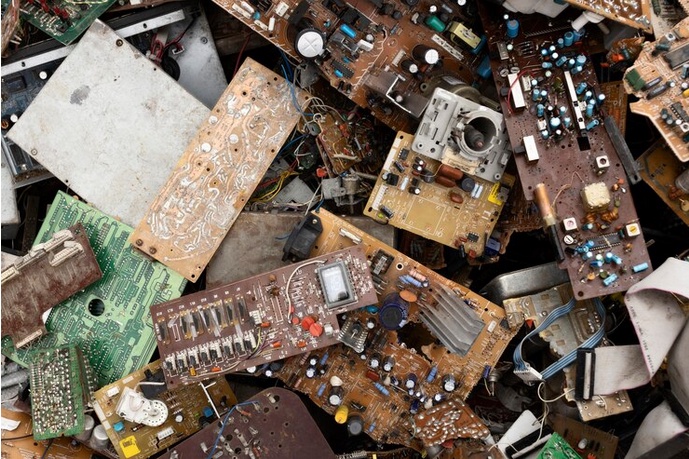Introduction
The proliferation of electronic devices in our daily lives has brought about unparalleled convenience and connectivity. However, it has also given rise to a significant environmental concern – electronic waste, or e-waste. Electronics recycling companies have emerged as key players in addressing this issue, pioneering innovative and sustainable solutions to reconfigure the way we perceive and manage e-waste. In this article, we will explore the transformative role of electronics recycling companies in redefining e-waste and the sustainable solutions they bring to the table.
The E-Waste Challenge
As technology evolves at an unprecedented pace, our relationship with electronic devices has evolved as well. From smartphones and laptops to refrigerators and televisions, electronic gadgets have become integral parts of our lives. The consequence of this digital evolution is the rapid generation of electronic waste. E-waste includes discarded electronic devices and their components, which often contain hazardous materials such as lead, mercury, and cadmium. If not managed properly, e-waste poses severe environmental and health risks, including soil and water contamination and exposure to toxic substances.
The Rise of Electronics Recycling Companies
Electronics recycling companies have emerged as vital contributors to addressing the e-waste challenge. These companies have adopted a multi-faceted approach, offering services and solutions that facilitate the responsible disposal, recycling, and refurbishment of electronic devices. Here are the key ways in which electronics recycling companies are redefining e-waste:
1. Sustainable E-Waste Management
Central to the mission of electronics recycling companies is the implementation of sustainable e-waste management systems. They have developed advanced processes that ensure the environmentally responsible disposal of electronic devices. This prevents harmful components from contaminating ecosystems, preserving the health of our planet.
2. Component Recovery and Recycling
These companies specialize in the recovery and recycling of valuable components and materials from discarded electronic devices. This not only reduces the demand for new raw materials but also diminishes the environmental impact of mining and manufacturing processes. By extracting, reusing, and recycling metals, plastics, and other materials, they actively promote a circular economy and minimize the carbon footprint of electronics.
3. Data Security and Privacy
Electronic devices often contain sensitive personal and business information. Ensuring secure data erasure is a primary concern of electronics recycling companies. They employ advanced data destruction techniques that render information on devices irretrievable, safeguarding individuals and organizations from potential data breaches and identity theft.
4. Refurbishment and Resale
Beyond recycling, many electronics recycling companies refurbish and resell electronic devices that are still in good working condition. This extends the lifecycle of these products, reduces electronic waste, and provides budget-friendly options for consumers.
5. Environmental Responsibility
By adhering to strict environmental standards and best practices, electronics recycling companies demonstrate their unwavering commitment to environmental responsibility. Their operations are designed to minimize negative impacts on the environment, from the use of energy-efficient processing facilities to the implementation of responsible disposal methods.
Innovation and Technology in Action
In their quest to redefine e-waste and promote sustainability, electronics recycling companies have harnessed innovation and technology. Their commitment to environmental preservation is evident in their efforts to find creative solutions to the e-waste problem. Here are some examples of innovative approaches they have adopted:
1. Automated Sorting and Separation
Modern electronics recycling facilities leverage advanced technologies for the automated sorting and separation of electronic components and materials. This not only streamlines the recycling process but also enhances efficiency, making it possible to recycle a broader range of devices.
2. Urban Mining
Some companies are embracing the concept of "urban mining." This involves the recovery of valuable metals from electronic devices, effectively turning cities into valuable resources for precious metals like gold and silver. Urban mining reduces the need for traditional mining, which can be environmentally destructive.
3. Extended Producer Responsibility (EPR) Programs
Several electronics recycling companies actively participate in Extended Producer Responsibility (EPR) programs. EPR programs encourage manufacturers to take responsibility for the disposal and recycling of their products, shifting the burden away from consumers and local municipalities.
4. Public Awareness and Education
Many electronics recycling companies engage in public awareness and education initiatives. By informing consumers and businesses about the importance of responsible e-waste disposal, they encourage individuals to recycle their electronic devices, contributing to a more sustainable future.
Conclusion
Electronics recycling companies have emerged as leaders in the quest to redefine e-waste and pave the way for a more sustainable future. Their commitment to sustainable e-waste management, component recovery, data security, refurbishment, and innovative practices is transforming the landscape of electronic waste.
Through their responsible e-waste management, recycling efforts, and innovative practices, electronics recycling companies are at the forefront of environmental preservation. They contribute significantly to resource conservation, ecosystem protection, and the reduction of electronic waste. By supporting electronics recycling companies and participating in responsible e-waste management, we all play a role in creating a more sustainable and eco-friendly world.
In a world where environmental sustainability is imperative, electronics recycling companies are shining examples of how to minimize the environmental consequences of electronic waste and establish practices that safeguard the well-being of our planet. These companies lead the way in redefining e-waste, setting the standard for responsible and sustainable solutions to one of the most pressing environmental challenges of our time.


No comments yet